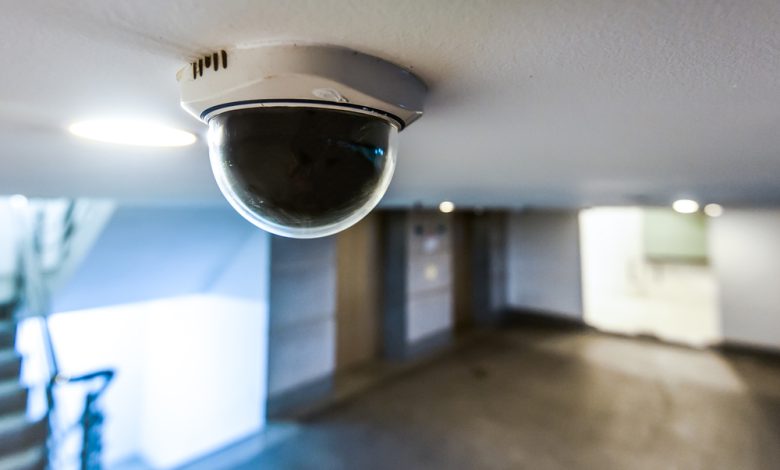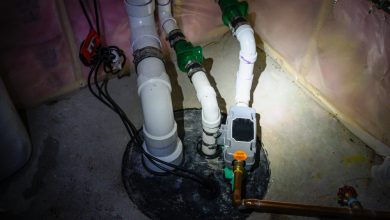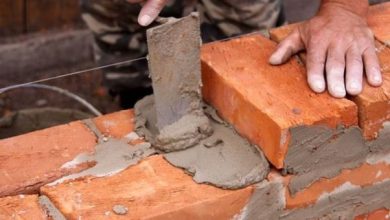The Importance of CCTV Cameras in Buildings.

The importance of CCTV cameras in buildings is skyrocketing. These little tech wonders aren’t just about playing back what happened; they’re shaping the future of security and safety. So, if you’ve ever wondered about the buzz around the importance of security cameras in buildings, you’re in for an insightful treat!
A Glimpse into the Evolution of CCTV Systems
The journey of CCTVs is nothing short of remarkable. These guardians, once mere shadows in the backdrop of black and white recordings, have now evolved into 24/7 vigilant protectors. From their early analog days capturing grainy moments, we’ve seen them transform into digital mavens, capturing high-definition footages, and proving their relentless importance in buildings.
The Significance of CCTV Cameras in Different Types of Buildings
Buildings, like people, have personalities and needs. Here’s a deep dive into how CCTVs cater to various infrastructures:
Residential Buildings
Beyond just security, CCTVs in homes add a layer of convenience. Imagine verifying your delivery guy or checking on your pet from your office! Moreover, for parents, it’s a relief to keep tabs on their kids, especially when away.
Commercial Buildings & Offices
Offices aren’t just about workstations and coffee machines. They house ideas, innovations, and sometimes secrets! CCTVs deter corporate espionage, ensuring strategies remain within walls. They also promote transparency, curbing workplace harassments and ensuring a conducive environment.
Public and Government Buildings
Crowds, chaos, and critical operations mark such buildings. CCTVs assist in maintaining order, ensuring smooth public dealings, and safeguarding national interests. Their importance is paramount in managing vast footfalls and ensuring public safety.
Key Advantages of Installing CCTV in Buildings
CCTV camera has too much benefits and advantage that can not only save you and your property but also gives a mental satisfaction that your belongigs are safe. Let’s dive deeper into the myriad advantages:
Crime Deterrence
It’s not merely the action but the thought of being watched that deters crime. Potential perpetrators, fearing exposure, often abandon malicious intentions upon spotting cameras.
Real-time Monitoring
Modern CCTVs come equipped with live feeds, push notifications, and even integration with smart devices. Such features allow building managers or homeowners to react promptly, sometimes even preventing mishaps.
Evidence Gathering
Clarity is vital in conflicts. From internal disputes to legal cases, having unbiased video evidence simplifies resolutions, emphasizing the importance of security cameras in buildings.
Access Control
Advanced CCTV systems, when paired with access control, can validate entries using facial recognition or number plate identification, ensuring a seamless yet secure flow.
Peace of Mind
A well-monitored building radiates a sense of security among its occupants, enhancing overall well-being and productivity.
Deliberations for Effectively Implementing CCTV Systems in Buildings
The process of setting up CCTV systems is more intricate than merely mounting cameras. It demands a thorough, thoughtful strategy that encompasses:
Optimal Camera Positioning
Diving deep into the architectural layout of the building is paramount. This entails examining the blueprint to discern potential vulnerabilities. Recognizing areas that may be susceptible to security breaches, the main avenues of ingress and egress, and potential blind spots is crucial. Once these zones are identified, cameras should be tactically positioned to ensure maximum coverage and oversight.
Safeguarding Data and Upholding Privacy
With the escalating significance of CCTV cameras in buildings comes the exponential increase in the volume of data they amass. It’s vital to adopt robust encrypted storage systems to secure this invaluable data. Moreover, to stay ahead of potential cyber adversaries, periodic software and firmware updates are essential. Protecting data isn’t just a technical necessity but a commitment to the privacy of the inhabitants.
Cohesive Integration with Broader Security Protocols
True security is achieved when all components operate in harmony. CCTV systems, while pivotal, are but one cog in the vast machinery of building security. To elevate their efficiency, these systems should seamlessly integrate with other security apparatus like alarms, motion detectors, and emergency response systems. This integrative approach weaves a tight-knit security net, leaving no room for vulnerabilities.
Real-world Incidents Where CCTV Made a Difference
Real stories inspire trust. There’ve been countless situations, from preventing potential thefts to assisting rescue operations during fires, where CCTVs have proven invaluable. In many cities, CCTVs have even aided in contact tracing, showcasing their evolving importance in buildings.
Future of CCTV Systems in Building Security
Hold onto your seats, for the future of CCTV is dazzling! Imagine CCTVs equipped with AI, predicting potential threats or even assisting in health monitoring. With augmented reality (AR) and virtual reality (VR) on the horizon, the importance of CCTV in buildings will only multiply, ensuring they remain pivotal in the security tapestry.
Conclusion
In wrapping up our deep dive into the importance of CCTV cameras in buildings, it’s clear that these devices are not mere gadgets but essential components of modern infrastructure. Their ability to deter, detect, and document makes them indispensable in our quest for a safer and more secure environment.
Frequently Asked Questions(FAQs)
1. Why is camera placement so crucial in CCTV installation?
Answer: Optimal camera placement ensures maximum coverage, reduces blind spots, and heightens the effectiveness of the CCTV system. Strategic positioning based on the building’s layout can significantly enhance security.
2. What are the primary data risks associated with CCTV cameras?
Answer: As CCTVs generate a considerable amount of data, risks include potential data breaches, unauthorized access, and cyber-attacks. Ensuring encrypted storage and regular software updates can mitigate these risks.
3. How can I ensure the privacy of individuals while installing CCTV cameras?
Answer: Prioritize placing cameras in public or shared spaces while avoiding personal areas. Always inform building occupants about surveillance areas, and if possible, display signs indicating CCTV monitoring.
4. How does integrating CCTVs with other security systems benefit a building?
Answer: A cohesive security approach, where CCTVs work in tandem with alarms, motion sensors, and other systems, offers multi-layered protection, ensuring no security aspect is overlooked.
5. Can modern CCTV cameras predict potential threats?
Answer: With advancements in AI and machine learning, some high-end CCTV systems can identify suspicious activities or patterns, providing a proactive approach to security.
6. Why is there an emphasis on encrypted storage solutions for CCTV footage?
Answer: Encrypted storage ensures that the data (footage) remains secure and can’t be easily accessed or tampered with by unauthorized individuals, protecting both security and privacy.
7. Are there legal regulations I should be aware of when installing CCTV cameras in buildings?
Answer: Yes, depending on the region or country, there may be regulations regarding where cameras can be placed, how data is stored, and how long footage can be retained. Always consult local regulations before installation.
8. Do all CCTV systems need to be integrated with the internet?
Answer: Not necessarily. While internet-connected systems offer remote monitoring and other advanced features, standalone systems can still provide robust surveillance without internet connectivity.
9. How often should I update or maintain my CCTV system to ensure it’s effective?
Answer: Regular maintenance checks are recommended, at least annually. Software or firmware updates should be implemented as soon as they’re available to ensure optimal performance and security.
10. What’s the best way to balance security needs with privacy concerns regarding CCTV installation?
Answer: Open communication is key. Inform occupants about the reasons for installation, ensure cameras are not intrusive, and always store data securely to maintain trust.



